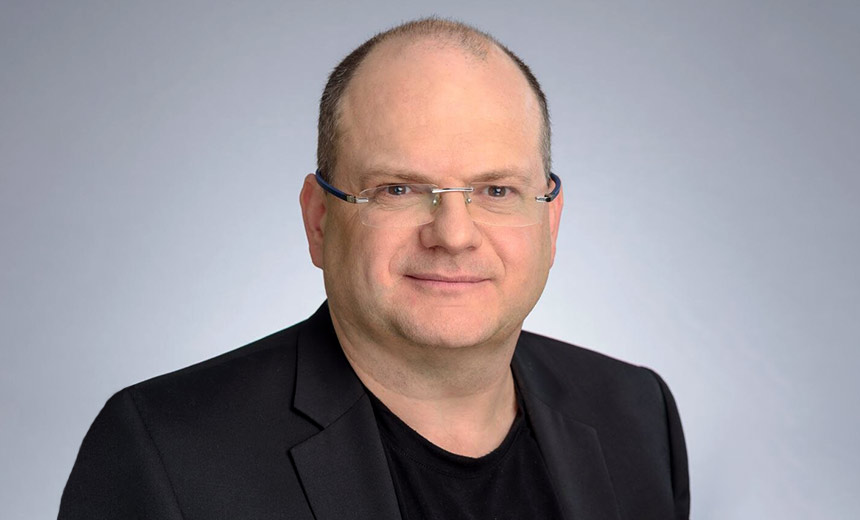Network Firewalls, Network Access Control
,
Security Operations
CEO Gil Shwed Pushes for More Productive Sales Force Amid Postponed Refresh

Check Point’s product sales have taken their biggest nosedive since 2018 as customers extend sales cycles and postpone projects while prospects decline to buy new products.
See Also: Live Webinar | Education Cybersecurity Best Practices: Devices, Ransomware, Budgets and Resources
Businesses have increasingly delayed product refresh projects since November in an effort to tighten budgets amid rising interest rates and stubbornly high inflation, said founder and CEO Gil Shwed. The pullback in security product spending mirrors declines seen in other technology segments, such as reduced shipments of personal computers, in early 2023, Shwed said.
“We are still operating in a challenging economy,” Shwed told investors Monday. “We saw the effect of that economy on our business with extended sales cycles, projects being postponed and a decline in new deals with product sales.”
Shwed said Check Point’s slowdown in product sales stems from broader macroeconomic challenges and doesn’t reflect weakness in the cybersecurity space. In fact, CEOs, CFOs and CISOs continue to tell Shwed that cybersecurity is a great area for investment given the evolving threat landscape (see: Check Point Finally Enters SD-WAN Space With Organic Product).
“Our sales force is not the source of the challenge. The source of the challenge is clearly the economy.”
– Gil Shwed, founder and CEO, Check Point Software
The firm has had much success at mitigating supply chain shortages, but a lack of order backlog and an exceptionally strong first quarter of 2022 also contributed to the year-over-year sales decline, Shwed said. Check Point in 2022 shipped pretty much all of the products clients ordered despite raw material and component shortages, which Shwed said has led to higher margins for Check Point in 2023 but not higher revenue.
“We are seeing a real change in the business environment,” Shwed said. “We have concerns about the tightening spending that we are seeing across the marketplace.”
Sales Force Improving But Could Still Be More Productive
Shwed said Check Point can accelerate its revenue growth by making existing customers more aware of emerging technology within the company’s portfolio in areas such as cloud security, email security and security operations. Although the performance of Check Point’s sales force has improved over the past year, he said the organization should pursue deeper C-suite engagements with clients and prospects.
“I think our sales engagement can be much higher,” Shwed said. “I think we are not meeting enough CISOs. I think we can better convey our story at higher levels in the organization. I think we can engage our customers in multiple ways.”
Check Point doesn’t plan to significantly grow its sales force in 2023 given the economic conditions as well as a desire to digest all the management and personnel hires made over the past year, Shwed said. But Check Point has more than enough cash on hand to hire additional salespeople if opportunities present themselves in certain geographies, customer segments or technology areas, Shwed said (see: #1 Cybersecurity Strategy and Why You Should Implement It).
Shwed said Check Point’s 3,000-person sales force is very distributed and historically lacked the structure or discipline needed to adapt to rapid change. He would like to see salespeople be more aggressive in pursuing new business and “getting to the people that don’t know us, not just the people who know us.”
“We can get much more productivity from our sales force, but our sales force is improving,” Shwed said. “In the last year, we hired a lot of good people. In the last six months, the level of attrition went drastically down … Our sales force is not the source of the challenge. The source of the challenge is clearly the economy.”
Product Sales Suffer Worst Hit Since 2018
| Category | Q1 2023 | Q1 2022 | % Change |
|---|---|---|---|
| Total Revenue | $566.2M | $542.7M | 4.3% |
| Software Updates and Maintenance Revenue | $230.0M | $225.2M | 2.1% |
| Security Subscriptions Revenue | $228.2M | $201.6M | 13.2% |
| Products and Licenses Revenue | $108.0M | $115.9M | -6.8% |
| Net Income | $184.1M | $169.4M | 8.7% |
| Diluted Earnings Per Share | $1.52 | $1.30 | 16.9% |
| Non-GAAP Net Income | $217.9M | $203.6M | 7% |
| Non-GAAP Earnings Per Share | $1.80 | $1.57 | 14.6% |
Check Point’s revenue of $566.2 million in the quarter ended Dec. 31 missed Seeking Alpha’s sales estimate of $568.7 million. And the company’s non-GAAP earnings of $1.80 per share exceeded Seeking Alpha’s non-GAAP estimate of $1.73 per share.
The company’s stock is down $6.73 – 5.28% – to $120.63 per share in trading Monday morning. That’s the lowest Check Point’s stock has traded since Oct. 26, 2022.
Europe, the Middle East and Africa, or EMEA, accounted for 45% of Check Point’s revenue in the first quarter, while the Americas delivered 43% of revenue and the Asia-Pacific region, or APAC, was responsible for the remaining 12% of revenue.
For the quarter ending March 30, Shwed says Check Point expects non-GAAP net income of $1.85 to $1.95 per share on earnings of between $570 million and $605 million.
